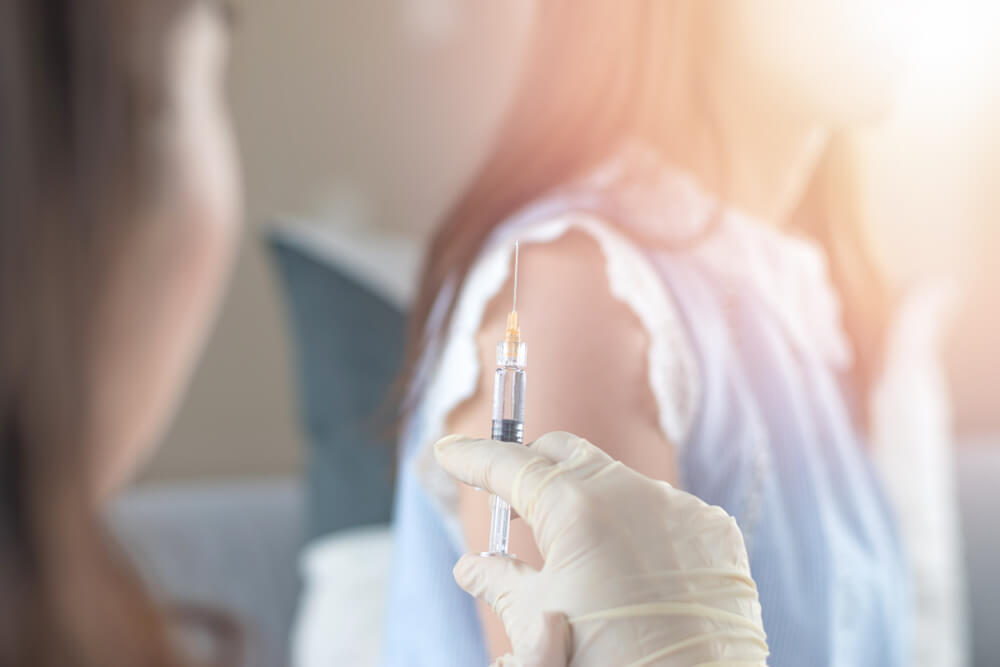When doctors prescribe allergy shots to treat your allergic rhinitis or other allergic reactions, this is considered to be a form of therapy called allergy immunotherapy. The logic behind allergy injections is that every shot consists of a small number of substances that your body reacts to and causes an allergy attack. These substances are popularly called allergens, and the allergy shots contain just enough allergens to make your immune system respond to them without causing a severe allergic reaction.
Your chosen doctor often gives allergy injections at specialized institutes such as the Allergy and Immunology Center, where staff is specialized in determining the patients’ therapy and mitigating symptoms of different allergies. Your body can have a very severe reaction to specific allergens, so make sure you follow your doctor’s advice and take your treatment very seriously.
Ideally, the shots are given by an allergist or an immunologist at their office or by a supervised physician with clear instructions on the procedure. The allergy shots can be given to children and adults, but it is not recommended for children younger than five years of age. Your chosen provider needs to consider different factors before deciding on your therapy, such as the length and severity of the symptoms, the patient’s environment, the cost, etc.
Why Should I Get an Allergy Shot?

Different allergies are treated in different ways, but for people who fall under the following categories, allergy injections are an excellent way to go:
- Other medications do not help you with symptoms.
- You cannot avoid the allergens causing the reaction.
- The medications given to you previously cause side effects or cannot interact with other medications you are taking.
- You wish to stop the long-term use of allergy medication.
- You have an allergy to insect bites and stings.
If you have seasonal allergies, you react to indoor allergens or insect stings, allergy shots are very often recommended as therapy. Hay fever or allergic asthma caused by pollen from plants and trees is treated with allergy injections, as well as allergies to dust mites, mold, pet dander, or to stings from wasps, bees, and similar.
Do Allergy Shots Work?
Allergy immunotherapy works in a way that your chosen doctor increases the dose of allergens given to you with each allergy shot, pushing the body to get used to those substances. This process is called desensitization, meaning that your immune system becomes tolerant to allergens, and the intensity of the symptoms you have been experiencing reduces over time.
Allergy shots resemble vaccines, and there are two phases of the body’s assimilation to allergens:
- Build-up phase where the injections are received one to two times every week, with increased dosages each time. This phase lasts from three to six months.
- The maintenance phase begins when the patient receives an effective dose, which depends on the level of their allergen sensitivity and the body’s response to phase one. The times between treatments are longer, between two and four weeks; this phase lasts up to five years.
When it comes to whether allergy shots work, experts say that they effectively decrease the symptoms of many different allergies, can stop the development of new allergic reactions, and prevent different allergic states from turning into asthma.
The length of the treatment can have a significant impact when it comes to effectiveness, and some people experience long-lasting relief from the symptoms while others relapse very soon after they stop getting allergy injections.
Different factors can influence the lack of response of the body to allergy shots, and they include:
- Wrong dosage of the allergen in the injection
- High levels of the allergen in the patient’s environment
- Exposure to triggers like tobacco smoke
- Allergens not recognized and identified during the primary evaluation
Types of Allergy Injections
There are various types of allergy injections, as they are adjusted to the patient’s particular situation. Some shots are created as seasonal allergy shots, while others are there to help patients deal with allergic reactions to insect stings.
Although allergy shots are very effective, many other forms of allergy immunotherapy are more suitable for particular situations. Different FDA-approved methods, such as tablets, drops, creams, etc., are ideal for patients who do not wish to treat their condition with allergy shots. Also, some allergies, such as food allergies or chronic hives, cannot be treated with injections.
What Are the Risks?

As this type of treatment includes provoking the body and triggering a reaction, it is possible that there might be some side effects which can have:
- Localized reactions can include swelling, irritation, redness, etc., around the injection site. This is quite common, and it usually occurs after a few hours but does not last long.
- Systemic reactions are less common, but they are more serious. If you start sneezing or you experience hives or nasal congestion, as well as wheezing, throat swelling, or chest tightness, make sure you contact your doctor immediately.
- Anaphylaxis is the most severe reaction to an allergy shot, and it is pretty rare but life-threatening. It causes trouble with breathing, low blood pressure, swelling, nausea, dizziness, etc. It starts half an hour after the shot has been given, and you start experiencing severe symptoms. Your doctor needs to be notified immediately, and you need urgent medical care.
Different experts state that the more regular you are with your therapy, the lower the chances of having a severe reaction to the injections. Also, taking antihistamine medication before the allergy shot makes you less likely to develop a response.
In most cases, patients are held for 30 minutes or more at the doctor’s office after getting a shot to prevent any severe reactions to the injection, so do not be scared; you will not be alone. The doctors observe your reactions and are ready to help you if you start developing problematic symptoms.
Before taking the shot, doctors perform a skin test or a blood test, to be on the safe side, so feel free to tell the doctor or nurse if you are not feeling well, especially if you are suffering from asthma. Make sure you share all symptoms which you might have experienced before because the more the doctors know, the safer you are.
Finally, it is essential to underline that the effects of allergic immunotherapy do not happen overnight, and you need to be persistent and patient. Most people notice positive results, but this requires time and dedicated investment, so make sure you speak to your doctor and find out which options exist and which ones might be most suitable for you.
Visit Us!
Regardless if you want to get seasonal allergy shots or just speak to a specialist about possible treatment options, our center is here for you. Schedule a meeting, and let us help you!


